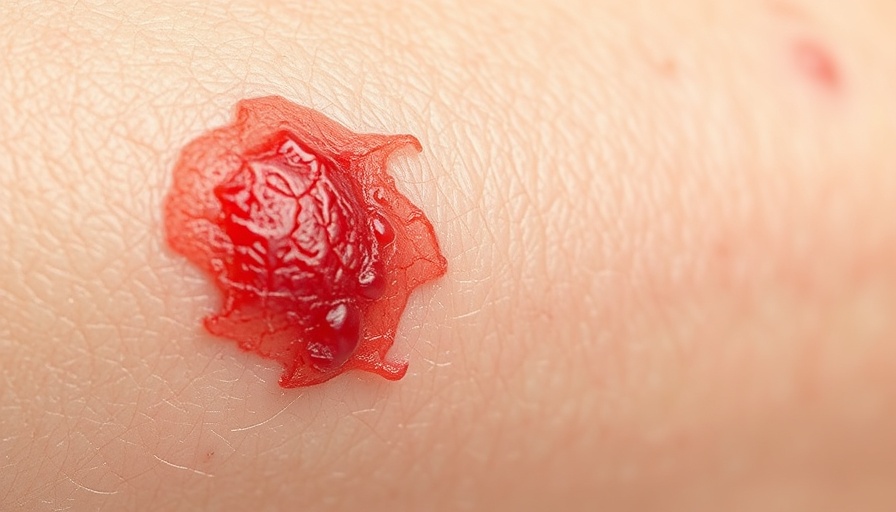
Understanding Skin Odors: What They Really Mean for Your Health
The human body, in all its complexity, often communicates vital health information through odors and skin conditions. Recently, a provocative video titled "It really does just smell like dead skin that's been sitting around for a while..." sparked crucial discussions around the implications of skin health and unpleasant body odors. This begs the question: what does our skin's smell reveal about our overall health?
In 'It really does just smell like dead skin that's been sitting around for a while...', the discussion delves into the significance of skin odors and their health implications, inspiring a deeper analysis.
The Science Behind Skin Odors
Our skin is home to trillions of microorganisms, which play an essential role in maintaining skin health. When these microorganisms experience dysbiosis, whether due to environmental factors or underlying health conditions, they can emit unusual odors akin to "dead skin." Commonly attributed to skin conditions like eczema or psoriasis, these scents can indicate imbalances that warrant attention. If you're noticing persistent skin rashes or unusual odors, a dermatology consultation is a wise step. Early intervention can lead to effective rash treatment and management.
Unexplained Rashes and Odors: A Call for Professional Evaluation
An unexplained rash can have various causes, ranging from allergic reactions to fungal infections. Skin rashes often signal deeper issues that may require expert evaluation. If you're experiencing an itchy rash that doesn’t resolve with over-the-counter treatments, seeking relief through a dermatology consult could unlock the answers you need. Skin allergies, for example, may be misdiagnosed as eczema or psoriasis when they are in fact reactions to cosmetics or environmental allergens.
The Role of Hygiene and Self-Care
Maintaining proper hygiene is paramount in preventing unpleasant odors and skin problems. Regular bathing and the application of appropriate skincare products help in managing excess oil and exfoliating dead skin cells, which can otherwise contribute to odor and skin rashes. However, it's crucial to choose the right products—overly harsh soaps can strip skin of its natural moisture, leading to dry skin and irritation. For those interested in anti-aging solutions, opting for chemical peels or laser treatments on a carefully regulated schedule will allow for healthier, rejuvenated skin.
When to Seek Specialized Care
While many skin conditions can be managed with good hygiene and over-the-counter treatments, some necessitate specialized care from a hives specialist or dermatological oncologist. For example, chronic conditions like acne or psoriasis may require advanced treatments, including phototherapy or tailored therapy strategies to ensure effective management. Furthermore, understanding when skin abnormalities could signal skin cancer is essential—regular skin cancer screenings and understanding your own skin's changes become paramount as you age.
Identifying Symptoms: Empowering Yourself with Knowledge
Knowledge about your skin can empower you to make important health decisions. For instance, recognizing symptoms of prevalent disorders such as psoriasis or eczema can lead you to appropriate treatment options and effective management plans, reducing the time to relief. Whether through teledermatology services or skilled dermatologists nearby, access to expert care is more available than ever, providing you with comprehensive resources to combat itching and skin discomfort.
Ultimately, understanding the health signals your body is emitting—whether through odor, rashes, or persistent skin issues—can enhance your ability to seek timely care and maintain optimal skin health. The intersection of health awareness and proactive skincare can lead to profound improvements in overall well-being.
 Add Row
Add Row  Add
Add 




Write A Comment